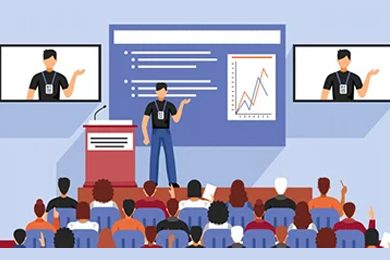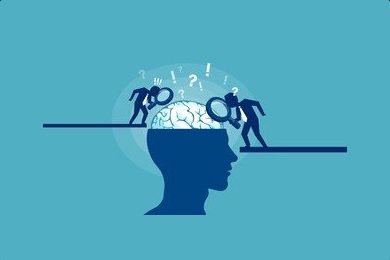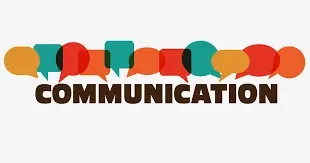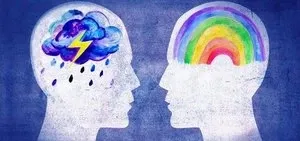This plan includes
- Limited free courses access
- Play & Pause Course Videos
- Video Recorded Lectures
- Learn on Mobile/PC/Tablet
- Quizzes and Real Projects
- Lifetime Course Certificate
- Email & Chat Support
What you'll learn?
- You will learn CBT, DBT & REBT based tools and techniques in a single course that are used to treat Cognitive Distortions, Trauma, Suicidal Thoughts, Depression, PTSD, Bipolar Disorder, Borderline Personality Disorder, Anxiety Disorder and other types of mental illness.
- You will progressively understand the beliefs and perspectives that result in poor mental health and how to administer the therapies as per need of the patient.
- You will be able to differentiate CBT, DBT & REBT concepts and their applications in treating patients suffering from various mental disorders and make a choice based on their specific needs.
- You will specifically learn CBT for Treating Cognitive Distortions, DBT for Treatment of Trauma & REBT for Treatment of Depression & Suicidal Thoughts
- In the first chapter on ‘CBT for Treating Cognitive Distortions’, you will learn CBT concepts, its history, how it works, steps in CBT, its pros & cons & its uses and effectiveness. You will alsol learn the concepts of Negative Thinking & Cognitive Distortions, its meaning, its origins & most common Cognitive Distortions, their harmful effects, various ways of changing and reframing the scenario to reduce Cognitive Distortions.
- You will be able to restructure the thought process through Cognitive Restructuring Therapy and self-monitor the thoughts and belief to change the behavior. You will learn how Exposure Therapy can be used to treat PTSD, OCD & SAD and other mental disorders
- You will learn how Automatic Thought Records & Journaling + ABC Model Therapy + Role Playing technique can benefit in treating Cognitive distortions. Finally you will learn about Progressive Muscle Relaxation Technique (PMR), its benefits in treating various psychosomatic disorders.
- In the second chapter on ‘DBT for Treatment of Trauma’, you will learn important DBT concepts and different DBT techniques for treatment of Borderline Personality Disorder (BPD) & Post Traumatic Stress Disorder (PTSD), its symptoms, how it helps reduce trauma related anxieties, how DBT works with CBT using Prolonged Exposure Therapy(PET), and Eye Movement Desensitization Reprocessing(EMDR) for treatment of trauma.
- You will also learn different DBT Skill Modules and how Mindfulness, Distress Tolerance, Interpersonal Effectiveness, Emotion Regulation are effectively used for treating trauma.
- In the third chapter on ‘REBT for treatment of Depression & Suicidal Thoughts’, you will progressively learn all the REBT concepts and its application though ABC model and REBT Technique to treat Suicidal Thoughts and Depression.
- By taking this course you will be able to help people to learn from past experiences to make wiser and more rational decisions, guide people in a time-proven process that improves mental wellness and upgrade their self-awareness, self-discipline and social effectiveness so that they can lead a healthy life.
Course Overview
The Psychotherapy treatments based on Cognitive Behavioural Approach Therapies, like CBT, DBT & REBT, are extremely popular amongst psychotherapists and are very effective and time tested. CBT is a catch-all phrase for therapies, that share common characteristics with DBT & REBT, which are CBT based psychotherapies. and have evolved from CBT. DBT & REBT are offshoots of CBT and are considered as New Wave Therapies. The three therapies are distinct from each other in terms of their goals, philosophies, approach, methodologies, sessions, and treatment. CBT, DBT & REBT are tailor-made for treating particular types of treatment more effectively. Many psychotherapists use all three therapies according to the patient’s needs. Many students find it challenging to understand the exact nature of the three therapies and their differences.
This unique course contains all three therapies and explains in detail the difference and similarities of each therapy and their suitability for each mental disorder. The course is divided into 3 chapters, Viz.
1) CBT for Treating Cognitive Distortions
2) DBT for Treatment of Trauma
3) REBT for treatment of depression & suicidal thoughts
You will discover the concepts, philosophies, various therapeutic models, and techniques for the treatment of major mental illnesses. You will gain lifetime access to Video Lectures, Demo Videos, Self- Assessment Tests, Worksheets, Manuals, Articles, and Psychology Dictionary to help deep learning. We recommend the following after enrolling:
1) Go through each lesson and attempt the Self-Assessment Test, in the form of MCQs, the next day.
2) Go through the manuals, worksheets, and the articles provided.
3) Make notes while you learn.
4) Revise the lessons and practice the sessions at home.
This course will provide you with an in-depth knowledge of the psychological process and help you discover how your thoughts (cognitions), feelings (emotions), and behaviors interact with each other in response to your day-to-day experiences. You will understand the nature of mental problems and the symptoms that will enable you to comprehend the techniques employed in each therapy and thereby help people. You will also develop self-awareness, self-consciousness, and self-esteem that will help your personal growth and professional development.
No prior knowledge of the subject is required for this course. The course is ideal for 1st-time learners, students, health workers, life coaches, HR executives, parents, community workers, and couples so that they can pursue their goal of gaining knowledge and helping people. This course is not a substitute for University approved courses, but it will aid quick learning and grasping of the concepts of CBT, DBT, and REBT.
This course comes with a 30-day money-back guarantee which means that you can enroll in the course today, absolutely risk-free.
Pre-requisites
- No prior knowledge of the subject is required to enroll in the course.
- This course is specially designed for those who have a thirst for quick knowledge but avoid books.
- Only an internet connection and a Laptop/PC/Mobile/Tablet.
Target Audience
- This Course is for first time Learners, Students, Health Workers, HR Executives, Parents, Community Workers and for any one who is interested to learn the subject and help people afflicted with mental illness.
- This course is not for professors and practicing psychologists who are already in the field of treating patients.
- This course is not a substitute for university approved courses. It only aids quick and effective learning of the subject.
Curriculum 55 Lectures 04:36:50
Section 1 : Course Outline by Instructor
Section 2 : Module1- CBT for Treatment of Cognitive Distortions
- Lecture 1 :
- Introduction to CBT Module
- Lecture 2 :
- Introduction to CBT
- Lecture 3 :
- Negative thinking & Cognitive Distortions
- Lecture 4 :
- Negative Thinking & Cognitive Distortions
- Lecture 5 :
- Effects of Cognitive Distortions and CBT Treatment Techniques
- Lecture 6 :
- Test-Effects of Cognitive Distortions and CBT Treatment
- Lecture 7 :
- Cognitive Restructuring
- Lecture 8 :
- Cognitive Restructuring Demo
- Lecture 9 :
- Test- Cognitive Restructuring
- Lecture 10 :
- Exposure Therapy
- Lecture 11 :
- Test- Exposure Therapy
- Lecture 12 :
- Automatic Thought Records & Journaling
- Lecture 13 :
- Automatic Thought Records Demo
- Lecture 14 :
- Test- Automatic Thought Records & Journaling
- Lecture 15 :
- Role-Playing Technique
- Lecture 16 :
- Role Playing Demo
- Lecture 17 :
- Test- Role Playing Technique
- Lecture 18 :
- Progressive Muscle Relaxation Technique(PMR
- Lecture 19 :
- Progressive Muscle Relaxation (PMR) Technique for Kids
- Lecture 20 :
- Test- Progressive Muscle Relaxation Technique
- Lecture 21 :
- Summing Up
- Lecture 22 :
- Test- Introduction to CBT
Section 3 : DBT for Treatment of Trauma
- Lecture 1 :
- Outline for DBT for Treatment of Trauma
Section 4 : Module 2 -DBT for Treatment of Trauma
- Lecture 1 :
- Introduction to DBT
- Lecture 2 :
- DBT Demo
- Lecture 3 :
- Distinction Between DBT and CBT
- Lecture 4 :
- Test- Distinction Between DBT & CBT
- Lecture 5 :
- DBT and Treatment of Trauma
- Lecture 6 :
- Test- DBT & Treatment of Trauma
- Lecture 7 :
- Four DBT Skill Modules
- Lecture 8 :
- Test- Four DBT Skill Modules
- Lecture 9 :
- Mindfulness + Treatment of Trauma Using Mindfulness
- Lecture 10 :
- Test- Mindfulness + Treatment of Trauma
- Lecture 11 :
- Distress Tolerance+Treatment of Trauma Using Distress Tolerance
- Lecture 12 :
- Test-Distress Tolerance+Treatment of Trauma
- Lecture 13 :
- Emotion Regulation+Treatment of Trauma Using Emotion Regulation
- Lecture 14 :
- Test-Emotion Regulation + Treatment of Trauma
- Lecture 15 :
- Interpersonal Effectiveness + Treatment of Trauma
- Lecture 16 :
- Summing Up
- Lecture 17 :
- Introduction To DBT
- Lecture 18 :
- INTERPERSONAL EFFECTIVENESS FOR TREATMENT OF TRAUMA
Section 5 : REBT for Treatment of Depression & Suicidal Thoughts
- Lecture 1 :
- Outline for REBT for Treatment of Depression & Suicidal Thoughts
Section 6 : Module 3 -REBT for Treatment of Depression & Suicidal Thoughts
- Lecture 1 :
- Test- Introduction to REBT
- Lecture 2 :
- Introduction to REBT
- Lecture 3 :
- REBT Demo
- Lecture 4 :
- Difference Between REBT and CBT
- Lecture 5 :
- ABC Model
- Lecture 6 :
- Test- ABC Model
- Lecture 7 :
- REBT ABC Model Techniques-Treating Depression & Suicidal Thoughts
- Lecture 8 :
- Test- REBT-ABC Model Technique for Treatment
- Lecture 9 :
- REBT Techniques for Treating Depression and Suicidal Thoughts
- Lecture 10 :
- Test-REBT Technique-Treating Depression & Suicidal Thought
- Lecture 11 :
- Summing Up
- Lecture 12 :
- Test- Difference Between REBT & CBT
Our learners work at
Frequently Asked Questions
How do i access the course after purchase?
It's simple. When you sign up, you'll immediately have unlimited viewing of thousands of expert courses, paths to guide your learning, tools to measure your skills and hands-on resources like exercise files. There’s no limit on what you can learn and you can cancel at any time.Are these video based online self-learning courses?
Yes. All of the courses comes with online video based lectures created by certified instructors. Instructors have crafted these courses with a blend of high quality interactive videos, lectures, quizzes & real world projects to give you an indepth knowledge about the topic.Can i play & pause the course as per my convenience?
Yes absolutely & thats one of the advantage of self-paced courses. You can anytime pause or resume the course & come back & forth from one lecture to another lecture, play the videos mulitple times & so on.How do i contact the instructor for any doubts or questions?
Most of these courses have general questions & answers already covered within the course lectures. However, if you need any further help from the instructor, you can use the inbuilt Chat with Instructor option to send a message to an instructor & they will reply you within 24 hours. You can ask as many questions as you want.Do i need a pc to access the course or can i do it on mobile & tablet as well?
Brilliant question? Isn't it? You can access the courses on any device like PC, Mobile, Tablet & even on a smart tv. For mobile & a tablet you can download the Learnfly android or an iOS app. If mobile app is not available in your country, you can access the course directly by visting our website, its fully mobile friendly.Do i get any certificate for the courses?
Yes. Once you complete any course on our platform along with provided assessments by the instructor, you will be eligble to get certificate of course completion.
For how long can i access my course on the platform?
You require an active subscription to access courses on our platform. If your subscription is active, you can access any course on our platform with no restrictions.Is there any free trial?
Currently, we do not offer any free trial.Can i cancel anytime?
Yes, you can cancel your subscription at any time. Your subscription will auto-renew until you cancel, but why would you want to?
Instructor

11275 Course Views
8 Courses



 Tech & IT
Tech & IT
 Business
Business
 Coding & Developer
Coding & Developer
 Finance & Accounting
Finance & Accounting
 Academics
Academics
 Office Applications
Office Applications
 Art & Design
Art & Design
 Marketing
Marketing
 Health & Wellness
Health & Wellness
 Sounds & Music
Sounds & Music
 Lifestyle
Lifestyle
 Photography
Photography









.jpg?crop=smart&width=600&height=400)
.jpg?crop=smart&width=600&height=400)












